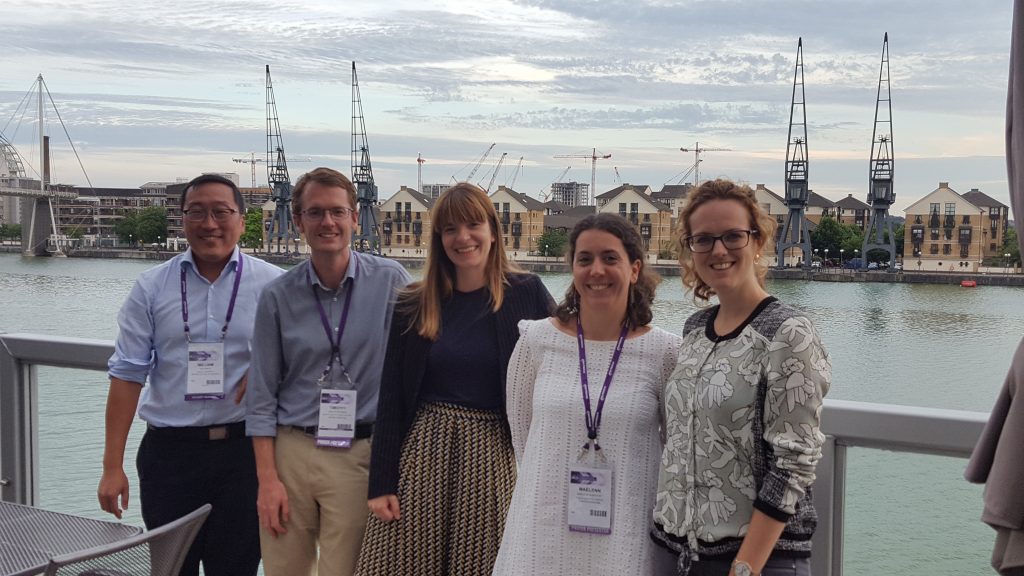Another breathtaking day of conferencing! I managed to make it for the 8am session today, catching up first off with the incredible Cognitive Function and Aging (CFAS) study. I have to declare a slight interest, as I once used some of their data. But I am mightily impressed that they have followed a cohort of patients from across the UK for many decades, revealing fascinating insights in to the risk factors and epidemiology of cognitive decline. What struck me most is that the well publicised decline in dementia prevalence in the UK has not extended to those most deprived in the country. A sobering message for public health
Then came the morning poster session. Rather than standing at my own poster, I was able to wander around and meet some new people and fascinating work. There was a huge breadth of work and it was great to see mechanistic insights on molecular work alongside posters on imaging and carer burden.
After a bite to eat I caught up with two sessions on emerging topics. The first was on Mild Cognitive Impairment, digging in to how education and other factors might interact with amyloid burden and why some people progress to Alzheimer’s while others do not. The second was on sleep and the various metabolic functions of a good night’s rest – I think this is a topic to watch closely for the future.
Much of the conference has had an American theme to it, but none more so than the afternoon coffee break. Along with a cup of strong black coffee we were served up bags of salty popcorn and cans of coke. I’m not sure what those presenting on diet, lifestyle and cognitive health would have to say about that!

The final session I was looking forward to, as I headed off to learn about cognitive reserve. This is the rather vague idea that if the brain is healthier and better organised, it may be able to stave off the onset of dementia for a few years. The field is still fairly new, but I wasn’t disappointed by the range of talks on how best to measure cognitive reserve, what imaging and brain network measures might be best, and a great use of the Allen brain atlas (a dataset I’ve made use of myself) to understand the genetics of cognitive reserve.
So, definitely a day of things to watch for the future.
And finally, capped off with a decent shindig at the Dementia Research Institute UK party with a few good WYLD friends. A great end to a great day!
